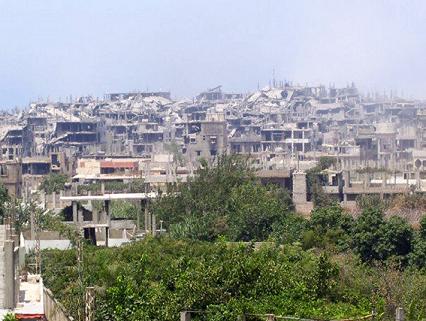The Lebanese government and Palestinian leaders have struck a quiet deal that would grant a new legal status to at least 3,000 Palestinians living in Lebanon without any identity documents, The Daily Star has learned. The plan was approved at a meeting last Friday that included representatives from the Interior Ministry, General Security, the United Nations Relief and Works Agency (UNRWA), the Lebanese-Palestinian Dialogue Committee (LPDC) and the Palestine Liberation Organization, PLO consul in Lebanon Mahmoud al-Asabi said.
General Security officials are working out the details of the new status, such as the rights and the type of identity documents those affected — known as non-ID Palestinians — will receive, Ambassador Khalil Makkawi, head of the Dialogue Committee, told The Daily Star on Tuesday. Palestinian advocacy groups have pushed for the new legal standing to allow those concerned to work and travel like other Palestinians.
"UNRWA welcomes any initiative to legalize the status of these people and improve their conditions," said UNRWA Lebanon chief Richard Cook.
Those involved with the process have not yet made public the coming change, as the official status of Lebanon's roughly 300,000 Palestinians remains one of the nation's most volatile political issues.
"We are trying to tackle this problem at a low key," said Makkawi, adding that authorities wanted to avoid any potential influx of non-ID Palestinians seeking the new standing. Makkawi's LPDC was established in 2005 during a renewed push by Prime Minister Fouad Siniora to establish diplomatic ties with the PLO and to address the glaring lack of rights among Lebanon's Palestinians.
The change in status will affect between 3,000 and 5,000 Palestinians, a number which includes a large percentage of single men who came to Lebanon in the wake of 1970's Black September clashes with the Jordanian Army or to fight for the Palestinian cause during the 1975-90 Civil War. Lebanese officials want to verify the names of the non-ID Palestinians with authorities in Egypt and Jordan, Makkawi said.
Many of these Palestinians received support from the PLO during the Civil War and did not need assistance until the PLO's ouster from Lebanon in 1982 and when the state started to reassert itself as the war drew to a close. The category of non-ID Palestinians also consists of the children born to fathers without proper documentation, because Lebanese law mandates that children born here inherit the legal status of their fathers.
The people in this group face obstacles in traveling within and outside Lebanon, owning property, graduating from school, marrying or gaining access to adequate health and social services, said a 2007 report from the Danish Refugee Council.
"In practice, most non-ID children attend UNRWA schools; however, due to their lack of identification, they can not be granted official diplomas," the report said.
The plight of this class gained attention following the 2001 shooting death of a young Palestinian man who fled from soldiers at a military checkpoint near the Ain al-Hilweh refugee camp in Sidon because he had false identification papers.
With the new status, non-ID Palestinians "will be able to come out from the camps, [whereas] now they are apprehended by the police without any documentation," said Makkawi.
The new status will not be the same as that given to Palestinians registered with UNRWA as refugees or registered with the government. Registering the non-ID Palestinians will not begin for at least two weeks, Makkawi said.
"General Security has promised to issue documents as soon as possible," added Asabi. "They are working very hard on it."
Refugees will then apply for the new status at regional registration centers around the country. The registration process will entail another challenge - convincing the undocumented Palestinians that "the government is serious and doesn't want to take their names and arrest them," said Samira Trad, an activist with the Frontiers Association, a non-governmental organization.
The initiative also comes at a sensitive time in the wake of US President George W. Bush's proposal that Palestinian refugees be compensated for the loss of their land.
"There will be some people who accuse the Lebanese government of siding [with Bush's proposal], of selling their souls, so to speak," Trad said.
The move to improve the status of the Palestinians also follows the apology issued on Jan. 7 by PLO representative in Lebanon Abbas Zaki for the "burden" that the Palestinians had placed on Lebanon.
Zaki said he was sorry for "the harm we Palestinians have unintentionally caused you all through our stay here in Lebanon," and he added that the PLO opposed any permanent resettlement in Lebanon.
Long aware of the difficulties obstructing the potential return of Palestinian refugees to any future Palestinian state, Lebanese from nearly every confessional group have spoken out against granting Lebanese citizenship to the 300,000 — mostly Sunni — Palestinians because it could reignite the smoldering tensions between the country's various sects.
"Emotionally, in Lebanon, the idea of the right to return to be completely dropped is impossible - whether you are with the Palestinians or not," said Trad. "Both [sides] argue that Palestinians should not be integrated into Lebanon."



